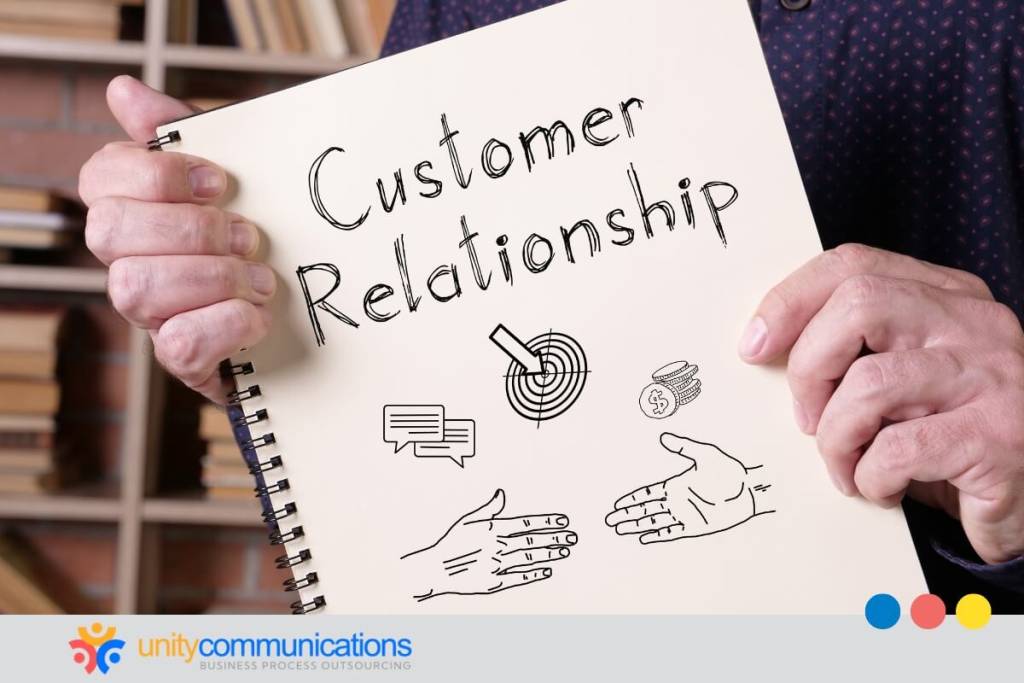IN THIS ARTICLE
Table of Contents
Cultural competence can significantly affect the success of business process outsourcing (BPO), and partnerships in Mexico are no exception.
Understanding how the cultural competence of your virtual assistants in Mexico can affect customer relationships is integral when outsourcing. It enables you to provide culturally relevant services, improve communication, and foster trust and rapport, which leads to better customer satisfaction.
If you want to learn more about the importance of cultural competence when outsourcing in Mexico, this article is for you. It explores its impact on the dynamics of the practice, focusing on its role in shaping customer interactions.
Understanding cultural competence in the Mexican context

To better understand how cultural competence can affect customer relationships when outsourcing, it’s best to first define it. According to Penn State Extension, cultural competence is the ability to be sensitive and adapt to diverse cultural environments and situations.
From this definition, we can deduce that it is a multifaceted concept encompassing awareness, knowledge, and skills.
- Awareness involves recognizing cultural differences and their impact on behavior and interactions.
- Knowledge entails understanding a particular culture’s values, beliefs, and customs.
- Skills refer to applying this knowledge and awareness to effectively communicate and interact with people from different cultural backgrounds.
These factors are critical when you outsource work to Mexico due to the region’s rich cultural heritage and unique business etiquette. Understanding and respecting these nuances can affect communication, trust, and relationships with Mexican clients and partners.
Key aspects of Mexican culture that influence interactions include:
1. Social values: The importance of relationships and community
Mexicans prioritize building personal relationships before conducting business. Trust and rapport are essential for successful partnerships. Getting to know your Mexican counterparts personally can boost your chances of success.
Some ways to build relationships with your Mexican BPO team include:
- Participating in social events (e.g., parties, outings, and community activities)
- Engaging in casual conversations (e.g., small talk about family, hobbies, or travel)
- Sharing experiences through activities (e.g., team building, retreats, or joint training sessions)
Mexico also has a hierarchical society. It’s important to address individuals based on their roles and show deference to those in positions of power. How you work around this cultural nuance can affect customer relationships and partnerships when outsourcing.
However, the family remains at the center of Mexican culture. Understanding its importance can help strengthen employee relationships and avoid making decisions that could negatively affect family matters.
2. Communication styles: Navigating indirect and nuanced interactions
Mexicans often use indirect language to avoid confrontation and maintain harmony. They might express disagreement or disapproval in a subtle or roundabout way, so listening carefully and being aware of these subtle cues are necessary.
Here are some examples of familiar nonverbal communication cues and interaction nuances in Mexican culture:
- Facial expressions: Mexicans might use facial expressions to convey various emotions, such as happiness, sadness, anger, and surprise. For instance, pursed lips can indicate disapproval, skepticism, or uncertainty. A raised eyebrow can convey surprise or disbelief. It can also suggest they question or want to challenge a statement.
- Gestures: Mexicans use gestures to emphasize their points or express emotions. For example, an embrace signifies you successfully built rapport with them. Holding up the index finger means one rather than “Wait a minute.”
- Eye contact: Maintaining eye contact is a sign of respect in Mexican culture. However, doing it excessively feels rude or aggressive. They might view prolonged eye contact as a sign of challenge or aggression, especially between men.
- Personal space: Mexicans often stand closer to each other than people from different cultures, especially when conversing with friends and family. Physical touch, such as hugging, kissing on the cheek, or holding hands, is common among friends and family.
- Passionate communication: Mexicans often approach communication with passion and speak loudly with emotion. Their tone of voice can indicate how they feel about your interaction. For instance, rapid speech can be a sign of excitement or urgency. It’s common for them to interrupt each other during conversations as a sign of engagement.
3. Business etiquette: Understanding professional conduct and expectations
Proper business etiquette is crucial for making a positive impression in Mexico. Understanding how Mexican work culture can affect interaction helps you navigate business and customer relationships effectively when outsourcing.
Here are some behaviors you should remember:
- Punctuality: Although Mexico values punctuality, it might not be as strictly adhered to as in other cultures. Be prepared for slight delays and avoid appearing overly rigid about time.
- Formality: Mexicans tend to be more formal in their business interactions. Use appropriate titles and honorifics, and avoid being overly casual.
- Gift-giving: Gift-giving is a common practice in Mexico. It’s customary to bring a small gift when visiting a Mexican business associate’s home or office. However, certain gifts might be inappropriate or offensive. For instance, red flowers are associated with witchcraft, while yellow and orange flowers symbolize death.
- Greetings: Mexicans typically greet each other with a firm handshake and maintain eye contact. They also exchange pleasantries and inquire about the health of family members.
How culture affects customer relationships when outsourcing
Cultural differences can significantly affect customer interactions in outsourcing partnerships. Respect for hierarchy, personal relationships, and formality in communication are critical cultural factors influencing customer expectations and satisfaction.
You might wonder, if the region’s culture can shape customer relationships, why outsource there in the first place? Mexico’s BPO sector offers unique advantages, making it a good place to outsource customer support roles.
Examples include:
- Lower labor costs: Mexico’s lower cost of living and competitive labor market make outsourcing cost-effective.
- Skilled workforce: Mexico boasts a growing pool of experienced professionals with proficiency in English and a strong work ethic.
- Proximity to the U.S.: Mexico’s geographic proximity to the U.S. offers several benefits, including shorter lead times, more accessible travel, and cultural similarities.
- Stable political and economic environment: Mexico’s political and economic environment is relatively stable, providing a conducive environment for business operations.
- Government incentives: The Mexican government offers various incentives and support programs to attract foreign investment in the BPO sector.
These benefits contribute to a cost-effective outsourcing business process to Mexico, making it popular across businesses of all sizes and industries. According to Statista, the Mexican BPO market could reach $5.5 billion in 2024 and grow to $6.48 billion by 2029.
Although outsourcing to Mexico seems promising, the cultural competence of Mexico outsourcing companies still plays a significant role in successful customer relationships.
How exactly do cultural differences affect customer relationships when outsourcing? Here are a few examples:
1. Formality in communication
Formality in communication is another important cultural aspect to consider when outsourcing to Mexico. Although Mexicans value politeness and respect, their indirect communication style and excessive formality can create challenges for customers from other cultures.
Communication with customers through the phone or the internet eliminates the essence of nonverbal cues. Thus, a Mexican BPO agent’s subtle or vague language can confuse customers.
For example, a U.S. customer might ask a Mexican BPO representative if a product is available for immediate shipment. The representative might respond, “It might be difficult to ship the product immediately” rather than simply saying no. This indirect response can leave the customer feeling uncertain and frustrated.
Here are other ways Mexican BPO teams can sound vague:
- Mexicans often use euphemisms instead of harsh or hostile language. For instance, when a customer’s order is delayed, a Mexican agent might say, “There was a slight delay in processing your order.”
- Mexicans often prioritize maintaining harmony, leading to indirect or evasive communication. A Mexican agent might avoid discussing issues directly and offer a solution, such as a discount or replacement.
- Mexicans value politeness and respect highly, leading to indirect or ambiguous communication. When a customer asks for a refund, the Mexican agent might respond, “We’ll do our best to accommodate your request.”
2. Respect for hierarchy
As mentioned, Mexico’s society has a profoundly ingrained hierarchical structure, which extends to business relationships. But how does this culture of collective decision-making affect customer relationships when outsourcing?
One of the most prominent impacts of hierarchical processes is slower response times. To better illustrate, here’s a typical organizational structure for customer-facing tasks, from highest to lowest:
- Customer support managers oversee the entire customer support team and ensure it meets performance objectives.
- Team leads supervise smaller teams of customer support representatives and provide guidance and support.
- Customer support representatives handle customer inquiries and complaints daily.
Resolving a customer concern through multiple stakeholders makes the approval process time-consuming. The need to consult with various team members can also limit the flexibility of customer support representatives in making on-the-spot decisions.
This leads to slower resolutions and increased delays, negatively affecting customer relationships. According to HubSpot, 90% of customers say an immediate response is vital to their experience.
Additionally, the involvement of multiple stakeholders can increase the risk of miscommunication or misunderstandings, leading to further delays or incorrect solutions.
3. Personal relationships and networking
Understanding how the Mexican work culture of building personal bonds can affect customer relationships when outsourcing support is critical. Networking is another important aspect of Mexican business culture you should remember. These can pose both advantages and challenges in interactions.
One of the primary advantages of personal relationships in customer support is that they can foster trust and loyalty. When customers feel a personal connection with the representatives, they are more likely to be satisfied with your company and loyal to it.
Meanwhile, networking allows BPO agents to do the following:
- Building relationships (e.g., fostering trust and loyalty and establishing favor exchange)
- Industry knowledge (e.g., learning best practices and industry trends, improving problem-solving, and innovating solutions)
- Resource sharing (e.g., gaining resources, expertise, and client referrals through partnerships)
- Professional development (e.g., accessing opportunities for mentorship, guidance, and training and development programs)
- Local connections (e.g., becoming more involved in communities, building a positive reputation, and understanding local dynamics and trends)
These can eventually help BPO teams resolve customer issues more effectively.
However, networking can also be challenging for customers who prefer a more direct and efficient approach. If customer support representatives spend too much time networking, it can delay the resolution of customer issues. Additionally, customers unfamiliar with Mexican business culture might find the networking approach confusing or intimidating.
In addition, customers who feel uncomfortable sharing personal information might find the individual approach intrusive or off-putting. Lastly, building strong personal relationships can take time, which is only feasible for some customers or businesses.
The role of cultural competence in enhancing customer support

Knowing how cultural competence positively affects customer relationships is the key to improved services. Understanding local nuances, adapting communication styles, and demonstrating cultural sensitivity allows BPO teams to provide empathic and effective support.
Here are some examples of culturally sensitive customer service:
- Using culturally appropriate language and greetings: This shows that the BPO team respects the customer’s cultural background.
- Avoiding cultural stereotypes: Stereotypes can be offensive and damaging to customer relationships. BPO teams should avoid making assumptions about customers based on their cultural background.
- Adapting communication style: BPO agents should be able to adjust their communication style to match the customer’s cultural preferences.
- Providing culturally relevant solutions: For example, a customer from a collectivist culture might be more likely to value group decisions and consensus. BPO agents should recognize these cultural differences and tailor their solutions accordingly.
Here’s how a culturally competent BPO team can positively affect support services and customer relationships:
1. Improved communication with customers
Cultural competence allows BPO agents to communicate more effectively with customers from diverse backgrounds. Understanding local idioms, expressions, and conversational norms helps support agents with the following:
- Avoiding misunderstandings: Cultural differences can often lead to misunderstandings if not appropriately addressed. By understanding local nuances, BPO agents can avoid language or phrases that might confuse or offend customers.
- Tailoring messages: Cultural competence allows BPO agents to tailor their messages to resonate better with customers from different cultures. By using language and examples familiar to the customer, agents can make their messages more relatable and compelling.
- Resolving issues more effectively: Clear and effective communication is crucial for resolving customer issues. By understanding cultural differences, BPO agents can communicate more effectively and find mutually agreeable solutions.
2. Enhanced customer satisfaction
Addressing customer concerns in a culturally appropriate and respectful way allows BPO teams to demonstrate their commitment to providing excellent service.
Let’s explore how culturally sensitive BPO agents affect customer support services and relationships:
- Provide relevant solutions. When culturally competent, BPO agents know how to tailor their solutions to diverse needs and preferences, positively affecting customer relationships. This can lead to higher customer satisfaction as customers feel understood and valued.
- Avoid cultural faux pas. Understanding Mexican culture prevents crucial mistakes that hurt positive customer experiences and relationships. When customers feel respected and understood, they are more likely to be satisfied with the service they receive.
- Improve customer retention. Satisfied customers are more likely to remain loyal and continue doing business with the company. BPO teams can improve customer retention and reduce churn by providing culturally sensitive customer service.
- Boost positive word of mouth. Satisfied customers are more likely to recommend the business to others, increasing customer acquisition and revenue.
3. Fostered trust and loyalty
Cultural competence in BPO teams is crucial in building customer trust and loyalty for your business. When your Mexican outsourcing team is culturally sensitive, they can achieve the following:
- Demonstrating respect: When customers feel their cultural background is respected and understood, they are more likely to trust your brand. Showing respect can include practicing culturally appropriate communication, avoiding cultural faux pas, and providing culturally relevant solutions.
- Building rapport: Cultural competence can help BPO agents build customer rapport by understanding their cultural preferences and communication styles. This can create a more positive and welcoming environment, fostering trust and loyalty.
- Providing personalized services: By understanding cultural nuances, BPO teams can offer more personalized and culturally relevant services. It demonstrates that the business values its customers’ needs, which can strengthen trust and loyalty.
- Creating a positive customer experience: When customers feel understood, respected, and valued, they are more likely to have a positive customer experience. This can increase satisfaction, loyalty, and positive word of mouth.
Best practices for building cultural competence in outsourcing
Now that you know how cultural competence can affect customer support services and relationships, it’s time to learn how to sustain it when outsourcing.
Here are vital strategies to ensure your Mexican BPO team is culturally sensitive to your customers all the time:
1. Start with hiring culturally competent agents
Hiring Mexican outsourcing agents with strong cultural competence is essential for your business’s success with customer rapport. Culturally competent employees require less training, saving you time and resources.
Some factors to consider when choosing a BPO partner in Mexico include the following:
- Language skills: Prioritize outsourcing firms with employees fluent in Mexican and Spanish so the business can serve a more diverse market.
- Cultural awareness: Look for BPO providers who demonstrate cultural understanding and a willingness to learn about different cultures.
- Cross-cultural experience: Consider hiring individuals with experience working in cross-cultural environments.
2. Invest in cultural awareness training
Training programs equip Mexican BPO teams with cultural competence, even when you’re already partnered with a qualified team. Here are some key considerations when developing workshops and training programs:
- Tailored curriculum: Customize training programs to the cultural context of the countries where your outsourcing partners operate.
- Interactive learning: Role-playing and simulations help employees apply their knowledge and skills in real-world scenarios.
- Continuous learning: Encourage ongoing learning and development through workshops, conferences, and online resources.
3. Encourage feedback on cultural competence
Feedback can help identify areas where cultural competence needs improvement. This allows the team to address specific issues, take targeted action, and feel engaged, motivated, and committed to improving.
Here are some best practices for this approach:
- Open communication: Create an open and supportive environment where employees feel comfortable providing feedback on their cultural interactions.
- Anonymous surveys: Use anonymous surveys to gather employee feedback without fear of reprisal.
- Performance reviews: Incorporate cultural competence into performance reviews to assess employees’ ability to interact effectively with people from diverse backgrounds.
4. Additional best practices
Aside from the previously mentioned strategies, consider the following steps:
- Cultural immersion: Encourage employees to participate in cultural exchange programs or travel to your outsourcing partners’ countries. This can help them gain firsthand experience and deepen their understanding of different cultures.
- Mentorship programs: Pair employees with mentors who have experience working in cross-cultural environments. Mentors can provide guidance, support, and insights into cultural differences.
- Cultural exchange initiatives: Foster cultural exchange within your organization by organizing events, celebrations, and cultural awareness activities. This can help break down stereotypes and promote understanding.
The bottom line

Cultural competence is a critical factor in the success of outsourcing partnerships in Mexico. The differences between Mexican and American work etiquette can make or break your efforts in building a good reputation among consumers.
Differences in Mexican and U.S. cultures affect customer relationships through social values, communication styles, and business etiquette. An increased focus on formal communication, respect for authority, personal relationships, and networking significantly shape customer service.
Fostering a culturally competent Mexican BPO team is critical. Choose a culturally competent BPO provider, invest in training, encourage feedback, and find other opportunities to enhance cultural awareness and sensitivity.
These efforts for cultural competence can help improve interactions, build trust and loyalty, and boost customer satisfaction. Ultimately, you enhance customer relationships and gain a competitive advantage.
Are you looking for a culturally competent BPO team from Mexico? Let’s connect! Unity Communications is an award-winning provider of adaptable outsourcing solutions. With offices in the Philippines and Mexico, Unity can build a capable team that meets your needs.





